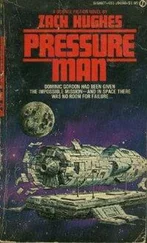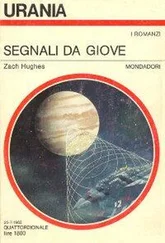Zach Hughes - Mother Lode
Здесь есть возможность читать онлайн «Zach Hughes - Mother Lode» весь текст электронной книги совершенно бесплатно (целиком полную версию без сокращений). В некоторых случаях можно слушать аудио, скачать через торрент в формате fb2 и присутствует краткое содержание. Жанр: Фантастика и фэнтези, на английском языке. Описание произведения, (предисловие) а так же отзывы посетителей доступны на портале библиотеки ЛибКат.
- Название:Mother Lode
- Автор:
- Жанр:
- Год:неизвестен
- ISBN:нет данных
- Рейтинг книги:3 / 5. Голосов: 1
-
Избранное:Добавить в избранное
- Отзывы:
-
Ваша оценка:
- 60
- 1
- 2
- 3
- 4
- 5
Mother Lode: краткое содержание, описание и аннотация
Предлагаем к чтению аннотацию, описание, краткое содержание или предисловие (зависит от того, что написал сам автор книги «Mother Lode»). Если вы не нашли необходимую информацию о книге — напишите в комментариях, мы постараемся отыскать её.
Mother Lode — читать онлайн бесплатно полную книгу (весь текст) целиком
Ниже представлен текст книги, разбитый по страницам. Система сохранения места последней прочитанной страницы, позволяет с удобством читать онлайн бесплатно книгу «Mother Lode», без необходимости каждый раз заново искать на чём Вы остановились. Поставьте закладку, и сможете в любой момент перейти на страницу, на которой закончили чтение.
Интервал:
Закладка:
looked at the viewers. Still lots of stars. Still closer to the core. And it took still longer for the computer to chuckle its way to a conclusion about location, for the stars around them were not included on the ship's charts and the computer had to backcheck behind them until it found a familiar correlation. Once again, and again, and a long wait for charging with a storm of solar winds eddying and seething around the ship, straining the capacity of the radiation shields built between the hulls. «One more time,» she told Mop. She pushed the button. Mother leapt. Mop sat down, his long hair hiding his rear legs, lifted his sharp little muzzle toward what the ship's gravity told him was the ceiling, and howled. Erin jumped, startled. «Don't do that,» she said. Mop lifted his nose and howled once more, then lay down with his nose between his front legs. Erin felt little sheets of shivers running up and down her spine. She punched in an all-direction scan, watched the screens closely. Stars and more stars. Then, toward the core, oddly enough, a big blackness. She punched in magnification, her heart pounding. She hadn't really expected to find an isolated binary so near the galaxy's heart. But there they were, two stars of equal brightness. She punched in orders. Optics whirred into position. The twin stars were separated by 9.5 astronomical units, had an orbital period of 44.5 years. The mass of the nearer sun was .96 of the sun of New Earth, the star by which man measured all others. The farther star was slightly larger in mass than the New Sun, which accounted for the fact that, even though it was more distant, it had the same apparent brightness as the nearer star. The nearer star was sterile, alone in its assigned volume of space. The other had whelped. She had to make a short Blink to get near enough for the ship's instruments to pick up the family of planets circling the more distant, larger star. So far everything on the chart was checking out. She put the Mother Lode on flux and, while she gathered data and recharged the generator, had a bath, gave Moppy one—much to his disgust—dried her hair and his with a blower, and then held Moppy up to the viewer to show him the sights. The ship flew past two uninhabitable planets, one a frozen ball of ice, the other a gas giant. «Well, my boy,» she told Mop, «it's just the way Dad's old buddy said it was.» She felt herself becoming just a bit excited as Mother neared her destination. She was quite close, astronomically speaking, before Mother's sensors could pick up the belt of asteroids located roughly in what would have been the star's life zone. Beyond the asteroid belt were two small bodies, one not much larger than a respectable moon, orbiting so close to the sun that they were nothing more than scorched rock. Not all life zone planets were number three planets, but most were. Once, apparently, this sun had had a third planet, a world positioned in that relatively narrow, highly critical area just close enough to a sun to condense water, not close enough for the water to boil away, and not far enough away for the water to freeze permanently. Now, in the orbit of the third planet, the ship's instruments picked up a band of rubble. The jumble of rocks extended far and away, curving in both directions, making a ring of space rubbish all around the sun. She let the ship fall closer, whistled when the optics showed that it was really crowded in there, that the chunks of rock, asteroids large and small, were so close together that maneuvering among them was going to be, at best, thrilling. She gave the ship directions. Gyros whined. The ship turned slowly, taking up an orbit parallel to and at a safe distance from the asteroid belt. She jumped when Mother's detectors pinged a warning, but before she could act a chunk of rock the size of an interplanetary freighter rolled past not over a half mile away. The tumbling asteroid didn't make a roar of threat, as debris sometimes did in the more amateurish space operas, but even without sound it was menacing enough to send Erin scampering to the controls to put more distance between her and the belt. She had a good sleep before approaching the asteroids again. Then, heart pounding, she turned the ship's detectors to maximum power and upped Mother's speed a bit. She zapped in close to the belt, holding her breath, matched velocity with the nearest large rock. The rock was tumbling slowly. It had ragged, sharp edges. No rain, no friction, no nothing in space to weather it. It was as big on one relatively flat surface as a city block, rounded on the other three sides. She edged the ship closer, turned on the detectors. Not much happened. She moved on to make another nerve-racking approach to a slowly tumbling rock mountain and used the detectors again. Nothing. It was four hours and several fruitless tries later that she pulled up alongside a smaller chunk of rock and turned on the detectors to hear them sing out loudly of heavy metals. She did some fine tuning and nodded. «Well, Mr. Mop,» she said, «There's gold in them thar hills, after all.» It was challenging as hell to bring the ship closer and closer to the slowly tumbling chunk of mass and inertia. One little misjudgment and it was one helluva long walk home. She edged up to a flat surface, teased Mother into followed the tumbling motion, hit the guidance jets, yelped as the landing gear contacted the rock. Mop said, «Yipe.» «Now you're worried?» she asked, as she adjusted the field to include the big rock and to effectively attach it to the ship. She let the computer measure the roll and tumble and fed impulses into the flux drive and guidance jets until the disturbing motions were stilled and the ship and rock, held together by the power of Mother's giant generator, sailed serenely along without so much as a wobble. «My boy,» she said, «things are looking up.» There was a huge vein of gold directly under the ship. She took up station in the second crew's cabin, which her father had turned into a control room for the raining equipment. Soon an extractor arm was using a laser to boil rock away from the vein of gold and, before the end of her first work day, she had not just some gold, but pounds of gold aboard ship. Gold so pure that it seemed to glow. When the vein of almost pure gold ran out she moved ship, using the extractor arm to pull Mother to a new position. There was gold, but it wasn't nearly as pure as the first vein. She lifted ship and spent several days trying to find another source as rich as that of the first day. After a week of it, she came to the conclusion that she was not going to get rich in a matter of days, that the first vein had been a fluke. Not that there weren't fortunes contained in the asteroid belt. There was enough gold and platinum metals and silver to make her one of the richest people in the U.P., but it wasn't going to be all that easy. The Mother Lode wasn't going to go home laden with nuggets of pure gold, but she would go back with very, very rich ore filling all available cargo spaces. Heck, it might even take two or three trips out there to make her as rich as she decided she wanted to be. She started loading gold-rich ore. It was picky work. First the areas containing gold had to be searched out by instrument, then Mother had to be positioned. The ship couldn't sit on a needle point of rock, so some very rich sounding areas had to be bypassed in order to find a fairly flat landing place. Moving in and out of the tumbling, crowded asteroid belt ceased to be so thrilling she could hardly stand it and came to be just spine-tinglingly terrifying. She'd been working for just under a month when she decided to scout around a bit before attaching the ship to another asteroid. She circled the sun in an orbit outside the belt. The density of the belt was about equal all the way around. She saw chunks that were large enough to make fairly respectable moons for a small planet.
Читать дальшеИнтервал:
Закладка:
Похожие книги на «Mother Lode»
Представляем Вашему вниманию похожие книги на «Mother Lode» списком для выбора. Мы отобрали схожую по названию и смыслу литературу в надежде предоставить читателям больше вариантов отыскать новые, интересные, ещё непрочитанные произведения.
Обсуждение, отзывы о книге «Mother Lode» и просто собственные мнения читателей. Оставьте ваши комментарии, напишите, что Вы думаете о произведении, его смысле или главных героях. Укажите что конкретно понравилось, а что нет, и почему Вы так считаете.



